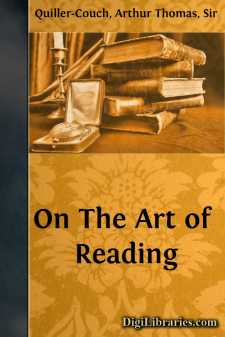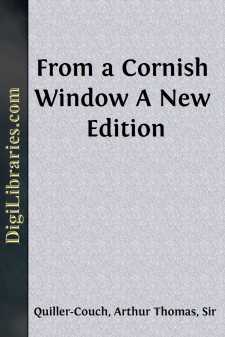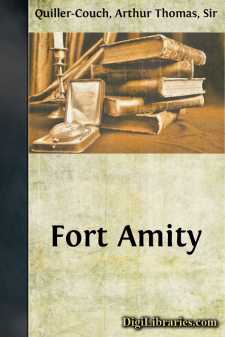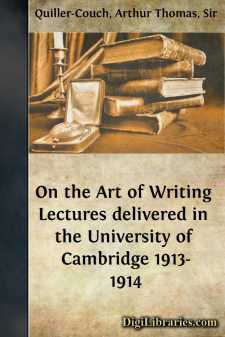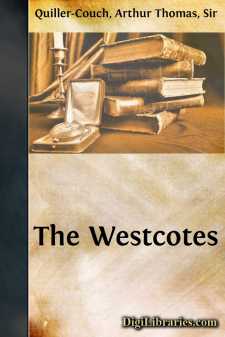Categories
- Antiques & Collectibles 13
- Architecture 36
- Art 48
- Bibles 22
- Biography & Autobiography 815
- Body, Mind & Spirit 144
- Business & Economics 28
- Children's Books 18
- Children's Fiction 14
- Computers 4
- Cooking 94
- Crafts & Hobbies 4
- Drama 346
- Education 58
- Family & Relationships 59
- Fiction 11833
- Games 19
- Gardening 17
- Health & Fitness 34
- History 1378
- House & Home 1
- Humor 147
- Juvenile Fiction 1873
- Juvenile Nonfiction 202
- Language Arts & Disciplines 89
- Law 16
- Literary Collections 686
- Literary Criticism 179
- Mathematics 13
- Medical 41
- Music 40
- Nature 179
- Non-Classifiable 1768
- Performing Arts 7
- Periodicals 1453
- Philosophy 65
- Photography 2
- Poetry 896
- Political Science 203
- Psychology 44
- Reference 154
- Religion 515
- Science 126
- Self-Help 85
- Social Science 82
- Sports & Recreation 34
- Study Aids 3
- Technology & Engineering 59
- Transportation 23
- Travel 463
- True Crime 29
Arthur Thomas Quiller-Couch
Arthur Thomas Quiller-Couch (1863-1944) was a renowned British writer and literary critic, best known for his influential work on English literature. He authored the classic "The Oxford Book of English Verse" and significantly contributed to the field of literary studies through his lectures at the University of Cambridge, where he held the position of King Edward VII Professor of English Literature. Quiller-Couch, often writing under the pen name "Q," was also a prolific novelist and short story writer, celebrated for his skillful storytelling and keen insight into human nature.
Author's Books:
Sort by:
LECTURE I INTRODUCTORY WEDNESDAY, OCTOBER 25, 1916 I In the third book of the "Ethics", and in the second chapter, Aristotle, dealing with certain actions which, though bad in themselves, admit of pity and forgiveness because they were committed involuntarily, through ignorance, instances 'the man who did not know a subject was forbidden, like Aeschylus with the Mysteries,' and...
more...
DEDICATION. MY DEAR WILLIAM ARCHER, Severe and ruthlessly honest man that you are, you will find that the levities and the gravities of this book do not accord, and will say so. I plead only that they were written at intervals, and in part for recreation, during years in which their author has striven to maintain a cheerful mind while a popular philosophy which he believed to be cheap took possession...
more...
CHAPTER I. MALBROUCK S'EN VA-T'EN GUERRE. "So adieu, Jack, until we meet in Quebec! You have the start of us, report says, and this may even find you drinking his Majesty's health in Fort Carillon. Why not? You carry Howe, and who carries Howe carries the eagles on his standards; or so you announce in your last. Well, but have we, on our part, no vexillum? Brother Romulus presents...
more...
PROLOGUE. Good wine needs no bush; but this story has to begin with an apology. Years ago I promised myself to write a treatise on the lost Mayors of Cornwall—dignitaries whose pleasant fame is now night, recalled only by some neat byword or proverb current in the Delectable (or as a public speaker pronounced it the other day, the Dialectable) Duchy. Thus you may hear of "the Mayor of Falmouth,...
more...
CHAPTER I. OF THE LINEAGE AND CONDITION OF SIR JOHN CONSTANTINE. "I have laboured to make a covenant with myself, that affection may not press upon judgment: for I suppose there is no man, that hath any apprehension of gentry or nobleness, but his affection stands to a continuance of a noble name and house, and would take hold of a twig or twine-thread to uphold it: and yet time hath his...
more...
LECTURE I. INAUGURAL Wednesday, January 29, 1913 In all the long quarrel set between philosophy and poetry I know of nothing finer, as of nothing more pathetically hopeless, than Plato's return upon himself in his last dialogue 'The Laws.' There are who find that dialogue (left unrevised) insufferably dull, as no doubt it is without form and garrulous. But I think they will read it with...
more...
PIPES IN ARCADY. I hardly can bring myself to part with this story, it has been such a private joy to me. Moreover, that I have lain awake in the night to laugh over it is no guarantee of your being passably amused. Yourselves, I dare say, have known what it is to awake in irrepressible mirth from a dream which next morning proved to be flat and unconvincing. Well, this my pet story has some of the...
more...
POETRY By Arthur Quiller-Couch "Trust in good verses then: They only shall aspire, When pyramids, as men Are lost i'the funeral fire." As the tale is told by Plato, in the tenth book of his Republic, one Er the son of Arminius, a Pamphylian, was slain in battle; and ten days afterwards, when they collected the bodies for burial, his body alone showed no taint of corruption. His relatives,...
more...
CHAPTER I THE WESTCOTES OF BAYFIELD A mural tablet in Axcester Parish Church describes Endymion Westcote as "a conspicuous example of that noblest work of God, the English Country Gentleman." Certainly he was a typical one. In almost every district of England you will find a family which, without distinguishing itself in any particular way, has held fast to the comforts of life and the respect...
more...
CHAPTER I. ROSEWARNE OF HALL. John Rosewarne sat in his counting-house at Hall, dictating a letter to his confidential clerk. The letter ran— "Dear Sir,—In answer to yours of the 6th inst., I beg to inform you that in consequence of an arrangement with the Swedish firms, by which barrel-staves will be trimmed and finished to three standard lengths before shipment, we are enabled to offer an...
more...


